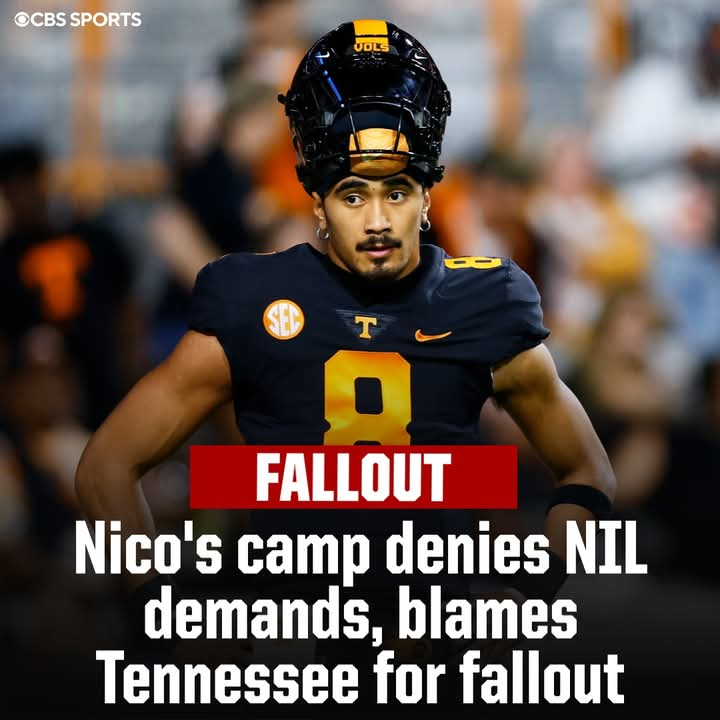Nico Signs $1.75 Million Deal with UCLA, But Faces Tax Hurdles and a Half-Million-Dollar Loss: Nico and His Family Push Back Hard Against Deal, Questioning Financial Choices and Long-Term Impact
Nico’s recent decision to sign a $1.75 million deal with the University of California, Los Angeles (UCLA) has attracted considerable attention, both for its promise and its pitfalls. While many would see the contract as a huge career milestone, Nico and his family are not entirely convinced it was the best financial move. Behind the celebrations and media headlines, there are serious questions about the long-term impact of the deal, especially given the tax burdens Nico will face in California and the possibility that he may have left significant money on the table.
The initial excitement surrounding the $1.75 million figure overlooks several critical factors that could diminish the value of the deal. California’s high state income tax is one of the most significant of these factors. With state taxes reaching up to 13%, Nico will face an automatic deduction of hundreds of thousands of dollars from his earnings. After taxes, Nico’s take-home pay could shrink by as much as $200,000, bringing his total net earnings from the deal closer to $1.5 million.
For many, $1.5 million would still be a life-changing sum, but for Nico and his family, it’s the context that raises alarm bells. The family was aware that California’s taxes would eat into the deal, but they are increasingly questioning whether it was the right choice in the first place. The problem isn’t just the tax burden, but also the potential loss compared to other offers Nico received. It’s been reported that if he had signed with another university or pursued opportunities in states with no income tax, like Texas or Florida, he could have netted as much as $2.3 million—an amount that would have left him with significantly more after taxes.
That’s a staggering difference. Nico could have lost out on over half a million dollars by choosing UCLA. This discrepancy has led Nico and his family to voice strong concerns about the financial decisions that led to this deal. While his athletic career and potential are undoubtedly important, his family believes that his financial future should have been considered more carefully.
Many experts have pointed out that athletes in Nico’s position should be advised to think beyond immediate earnings and focus on long-term financial health. They emphasize the importance of understanding how tax laws and state policies can impact a contract over time. In this case, while UCLA might provide immense exposure and an incredible platform for Nico’s career, his family is concerned that the financial impact of the deal could set him back significantly in the long run.
Additionally, the family has pushed back against the pressure to accept a deal based on reputation alone. Nico’s potential as an athlete is undeniable, but his family believes the deal should have been about more than just quick headlines and media attention. While UCLA offers prestige and opportunities, it may not be the best financial decision when weighed against other options. Nico’s family is particularly upset by the notion that they were pressured into making a decision without fully considering the financial ramifications.
Despite their concerns, Nico and his family are hopeful that the athlete’s future success will offset some of the current financial setbacks. As a rising star, Nico has the potential to secure even bigger deals down the line. However, they are now more committed than ever to ensuring that future decisions are made with a comprehensive understanding of both the immediate and long-term financial consequences.
In the end, while the $1.75 million deal with UCLA is undeniably a huge opportunity for Nico, the financial decisions behind it remain under heavy scrutiny. His family is pushing hard for a reevaluation of the terms of the deal, questioning whether the sacrifices made in this contract will pay off in the long run, or if they will ultimately leave Nico at a financial disadvantage. As the situation unfolds, one thing is clear—Nico and his family are determined to ensure that the next move is in his best interest, both as an athlete and as a financial entity.


